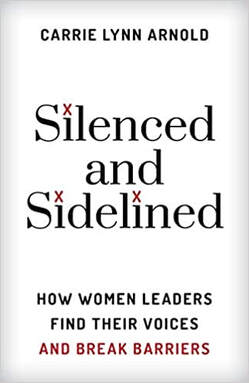|
Important Consumer Note: If your laptop, printer, router, cable box, or smartphone is broken (facepalm), I feel your pain! But please note – this article is not going to help with your technology issues (rats). I tend to write my blogs based on themes that emerge from my coaching and consulting practice. This past month I have seen a trend of clients talking about the need to repair broken relationships. They are curious about the best way to approach someone to restore something they believe has been compromised. For those wrestling with something similar, it may be helpful to understand the distinction between repairing a relationship versus hitting the reset button. To repair a relationship suggests some wrong needs to be made right. There needs to be a discussion about what was said or done with the objective of apologizing, forgiving, rebuilding trust, and moving on. However, when teams want to do this work together, within a full-day meeting, I start to sweat (gulp). It is hard to keep the collective conversation from creating more wrongs. Often what is brought up can be unfiltered and tends to cause additional damage and resentment. We can spend precious hours admiring all the microaggressions we have passed back and forth in our professional relationships. Instead, I try to get my clients to acknowledge the power of hitting the reset button. This means naming that relationships have not been optimal between people or parties for different reasons. Often people hold different positions that cause tension. There could be elements of ingroup versus outgroup dynamics that result in people feeling excluded. Sometimes, there is a long history of climate issues that leave people feeling devalued or unheard. Often relationships are threatened more by system issues than by the individuals themselves. When this is the case, repair is probably not the answer. Instead, a commitment to resetting the standards of professional engagement is the needed first step. When someone asks for a reset, the following need to be present.
Sometimes a reset is far too simple and professional relationships need more in-depth repair work (like going back versus forward and sharing context to seek restoration). Before you dive into that work – try the reset approach first. It may be precisely what is needed and can save you time and precious energy.
What professional relationships need a reset? Perhaps it is the extended break that accompanies the holiday season, the weather, a long-lasting food coma, or a family hangover (I heard recently that this is a thing). So far–2017 feels sluggish. It is possible the political antics of 2016 are still creating a fuzzy buzz that keeps clarity in a marginalized place in my brain. How will our new president-elect lead? How will the government respond to the environmental, economic and foreign affair issues that plague our country and cause me to worry? Along with this global uncertainty is the general ambiguity of a new year? What should I focus on for health and wellness? Like everyone else, I’m now older and with age come changes in responsibility to maintain my body. Then there is career. How will my practice shift and do I want or need those changes? I have never been a fan of New Year resolutions because like many, I struggle to maintain them. However, I have been quite disciplined in several categories. In 2016 I finished a Ph.D. which required an enormous level of cognitive discipline. I have managed to be gluten-free for six-weeks. I realize that is not very long… but that is a long time without Pillsbury Grand Biscuits. I also succeeded in shunning my black lab for two days after he snarled at a guest in our home. We can do whatever we set our minds to but sometimes I am not sure what my mind needs, and thus, I settle into a sluggish behavior where decision making is delayed, and a lack of energy keeps me moving slow, waiting for something or someone to prompt me to take a definitive next step. What has assisted me manage the sluggish struggle are other people. When I get an email from a colleague asking me to go to lunch to brainstorm ideas – I get motivated. When a client contacts me and says, I need to resume coaching, I take action. I have decided not to let any message or request go answered. I respond with a yes, even when my mind wants to stay lazy and put things off. When all else fails, taking some type of action helps.
I know I’m not the only sluggish fallible human being on the planet. Even as I write this transparent blog, I am wondering about the person who most needs to read this. As leaders, we have to be for others what we need for ourselves. Who have you asked to lunch or coffee in January? Who do you need to connect with that you have not done so in a while because the holidays were a good excuse? Someone besides me is feeling sluggish, and you are the person they need to hear from to move them out of their inertia. Do not wait – reach out today! For my fellow sluggish readers, say yes to the next request. |
Carrie Arnold, PhD, MCC, BCCIn no particular order: Author | Dog mom | Speaker | Reader | Mom to human offspring | Wife | Lover of Learning | Leadership coach & consultant, The Willow Group | Faculty for Evidence-Based Coaching at Fielding Graduate University
�
Categories
All
|
The Willow GroupCarrie Arnold, PhD, MCC
|
Silenced and Sidelined: How Women Leaders Find Their Voices and Break Barriers
|
|
© 2020 The Willow Group, LLC









